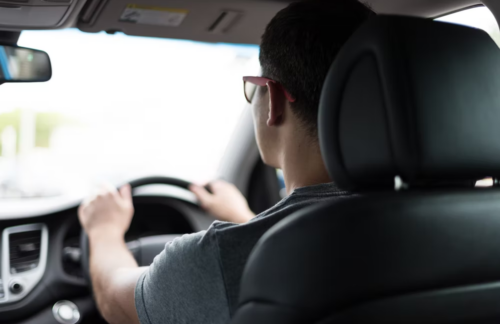Two different SR-22 certifications exist: standard SR-22 auto insurance and non-owner SR-22. We’ll discuss these in detail in this Guide to Filing Non-Owner SR-22 Insurance.
Drivers with a license suspension must file an SR-22 certificate with the state. An SR-22 certification doesn’t necessarily mean you’re a terrible driver, but insurance providers consider you a high-risk driver.
Generally, drivers must file an SR-22 form when they get a license suspension for excessive traffic violations or DUI convictions. Most states will require you to get an SR-22 for DUI and DWI convictions, except for Florida and Virginia. Both these states have the FR-44 certification, which is necessary for license reinstatement following a DUI conviction.
What is SR-22?
Many people often label SR-22 as insurance. But that moniker is misleading. SR-22 isn’t insurance. Instead, it’s a financial responsibility form that your insurance provider attaches to an insurance policy and submits to your state DMV. This form proves you meet the state’s minimum auto insurance requirements. Another term for SR-22 is a certificate of financial responsibility.
Who Needs an SR-22?
SR-22 is generally for people with poor driving records. You’ll need an SR-22 if you have received several traffic violations in a specific time. Most states require drivers to get the SR-22 for DUI and DWI violations. In Florida and Virginia, the FR-44 certification is for DUI convictions only.
Here are some common reasons people require an SR-22 certificate:
- Getting multiple traffic violations within six months. These violations often include speeding and parking tickets.
- Having one or more DUI or DWI convictions. For this, you’ll need a Florida Uniform Financial Responsibility Certificate FR-44 tied to a policy with coverage of 100/300/50.
- Being at fault in a car accident.
- Driving without insurance. Insurance companies have classified you as a high-risk driver.
Getting a Non-Owner SR-22
Non-owner SR-22 insurance performs the same function as an owner/owner-operator SR-22. The difference is that non-owner insurance is for drivers who don’t own the vehicle(s) they drive. For instance, if the state requires you to carry SR-22 insurance, you’ll need non-owner SR-22 if you occasionally drive a borrowed car.
You will need to get a non-owner insurance policy, and an insurance provider endorses the SR-22 certificate to that policy. The non-owner SR-22 form ensures you meet the state’s insurance laws with non-owner minimum liability coverage.
When Do You Need a Non-Owner SR-22?
You’ll need a non-owner SR-22 if you’ve committed traffic violations while driving a car that doesn’t belong to you. Many drivers often don’t own a car. Instead, they borrow one from a friend or family member who does not live in the same household as they do. The non-owner SR-22 proves beneficial in such instances. Learn more about non-owner insurance coverage.
How to Get an SR-22 Without a Vehicle?
You’ll need to meet your state’s mandated auto insurance requirements to file a non-owner SR-22 with the state. Many insurance providers don’t provide non-owner SR-22 insurance, so you might have to shop for it.
Steps to obtain non-owner SR-22 insurance if you don’t own a vehicle:
- The state will inform you to get SR22 insurance to reinstate your license or comply with a court order.
- Find a reputable insurance provider to get a non-owner insurance policy.
- Inform your insurance provider that you require an SR-22 filing.
- Pay the filing fee, if any.
- Your agent will provide you with copies of all documents.
- The state will restore your driving privileges.
What Does a Non-Owner SR-22 Cover?
Like the SR-22, the non-owner SR-22 meets minimum liability coverage requirements. It verifies that you meet the state minimum requirement for auto insurance. It does not include additional collision or comprehensive coverage because you are not insuring a vehicle.

Get Non-Owners SR-22 and FR-44 Insurance from UltraCar Insurance
Do you need SR-22 or FR-44 certification in Florida? UltraCar Insurance has you covered. We’re a leading SR-22 FR-44 Insurance provider Florida and Virginia. We also provide Non Owner FR-44 Insurance Florida and Non Owner SR22 Insurance Florida. Visit our website to learn more. Alternatively, start your quote with us today.

